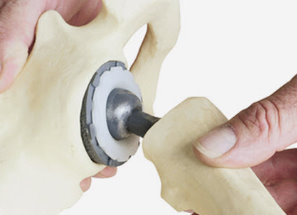Hip Implant Recall
Hip Implants are usually performed under general anesthesia and is considered one of the safest procedures for those who have had no prior surgery or have recently undergone one. This section will go over some of the complications that may occur with an implant, including potential risks to the patient, the surgeon, and the hospital. The National Institute for Health (NIH) recommends that patients with knee pain report any shoulder pain, back problems, or other symptoms related to their new hip. The following is a list of the most common complications and recalls that have been reported in the United States.
-
Injury to the hip joint: This is the leading cause of injury to patients with hip implants. The most commonly reported complication is infection. Infection is the second leading cause of complications after hip fracture. Infections are often caused by bacteria, viruses, fungi, or protozoa. In the majority of cases, the infection is not life-threatening. However, in rare instances, infection can be life threatening. This complication occurs when the infection spreads to the blood vessels which supply the implant, causing them to become swollen or blocked
-
In 2018, there were an estimated 71,225 hip implants procedures performed across the country, which means nearly one out of every 10 hip replacements are associated with some type of hip. There has never before been such high incidence of complications, as the number of patients undergoing hip replacement has been steadily increasing over the past decade.
-
In July 2009, the FDA issued a final rule requiring manufacturers to recall certain implants. The FDA said that all implants with defective or potentially faulty latches were subject to recall. At least one manufacturer recalled more than 3 million units in September 2009. One manufacturer, Medtronic Inc., had been making replacement hips since 2004 but stopped doing so last year. The FDA said that the recall was not related to the new FDA rule.
-
Recall notice explore the rule requires manufacturers of implants to notify the agency within 48 hours if they are found to be defective. Manufacturers are required to provide information on how the implants were manufactured, and the date of manufacture. The FDA also requires that manufacturers provide the manufacturer's name, address, telephone number, fax number and e-mail address. In addition, manufacturers must provide a list of the names and addresses of all patients who have had implants implanted in the past five years. Manufacturers are required to provide this information to patients and their families within 30 days of receiving the recall notice. If an affected patient has not received any notice or documentation from the manufacturer, he is entitled to receive one free replacement hip as part of his medical compensation. This procedure applies only for individual patients. The FDA's initial letter said that it was "committed to protecting the health and safety of consumers." It also stated that consumers were not obligated to inform them about problems with an implanted device. In response to this letter, a number of manufacturers voluntarily recalled the devices.
In most cases, the recalled hip implant products were found to be the cause of some of the most serious side effects and complications in patients.
Hip Implant Overview
Hip implant is a surgical procedure that is performed to implant a prosthetic hip into a patient's hip. The procedure is usually performed under general anesthesia and involves a series of surgical procedures to place the prosthesis into the hip joint. This includes removing or replacing any bone fragments from within the hipbone, as well as implanting an artificial hip, which will be implanted with titanium in order for it to function properly.
When this process has been completed, the patient will have a new hip that will function like a natural one. The hip implant is an important part of hip replacement surgery. It is designed to provide a more natural fit for the body, and it will help to reduce the risk of complications.

Contact us – we can help
If you’ve been harmed by having a hip implant, contact an attorney right away to find out if you have a case.
Depending on your circumstances, you might have a case against the device manufacturer, your doctor, or the medical organization.